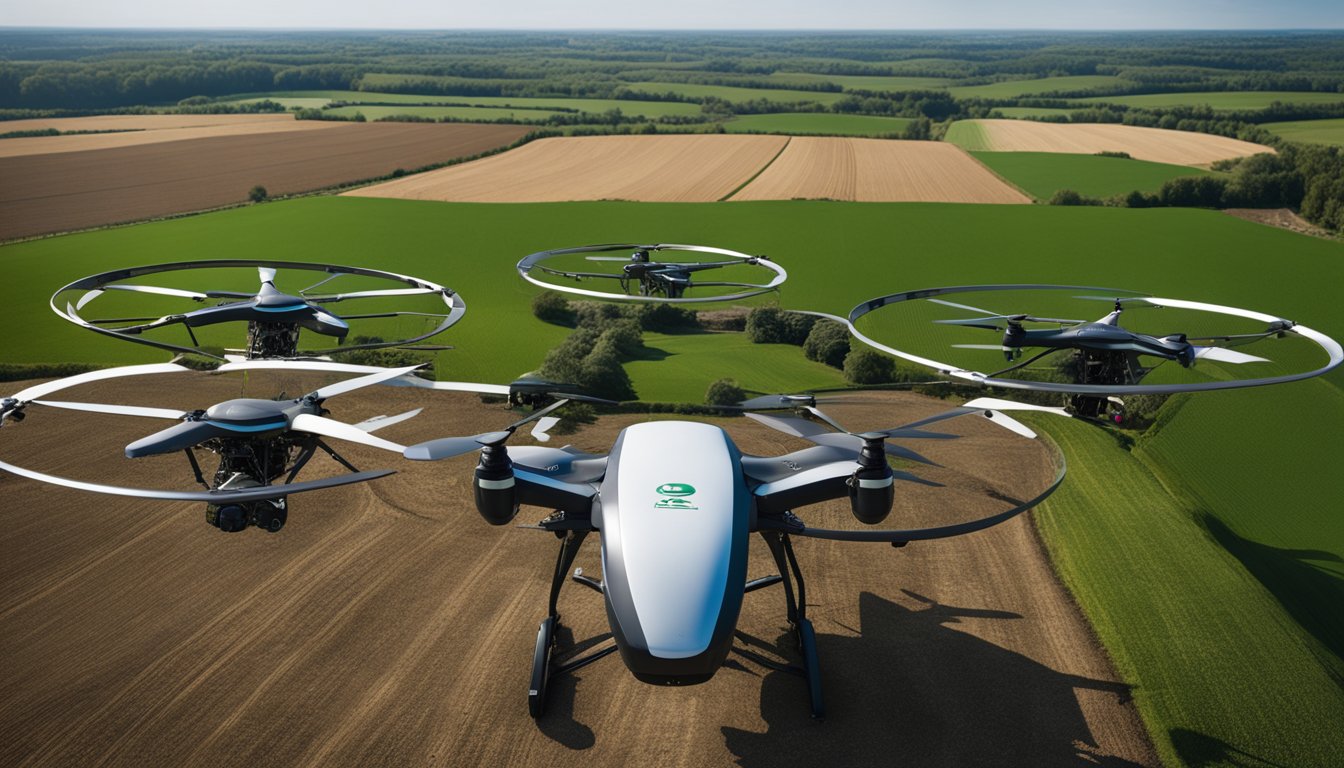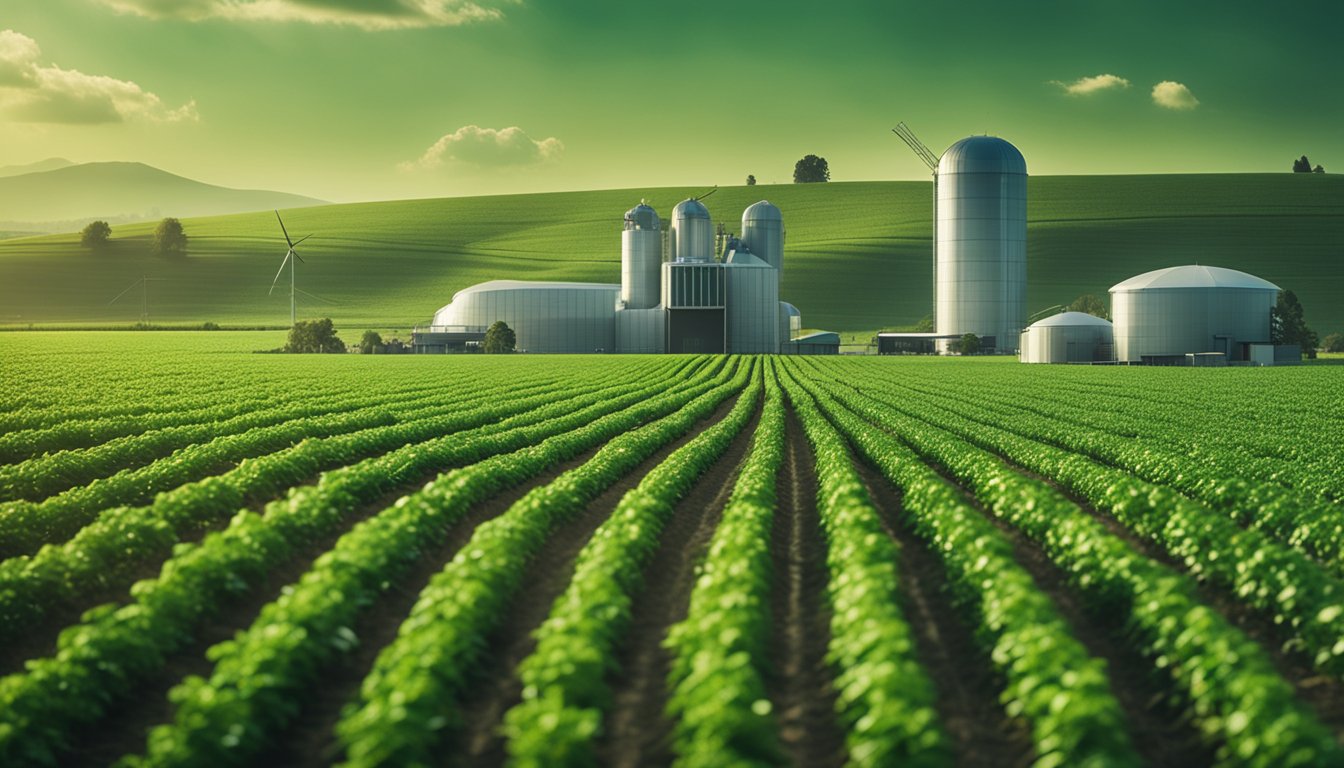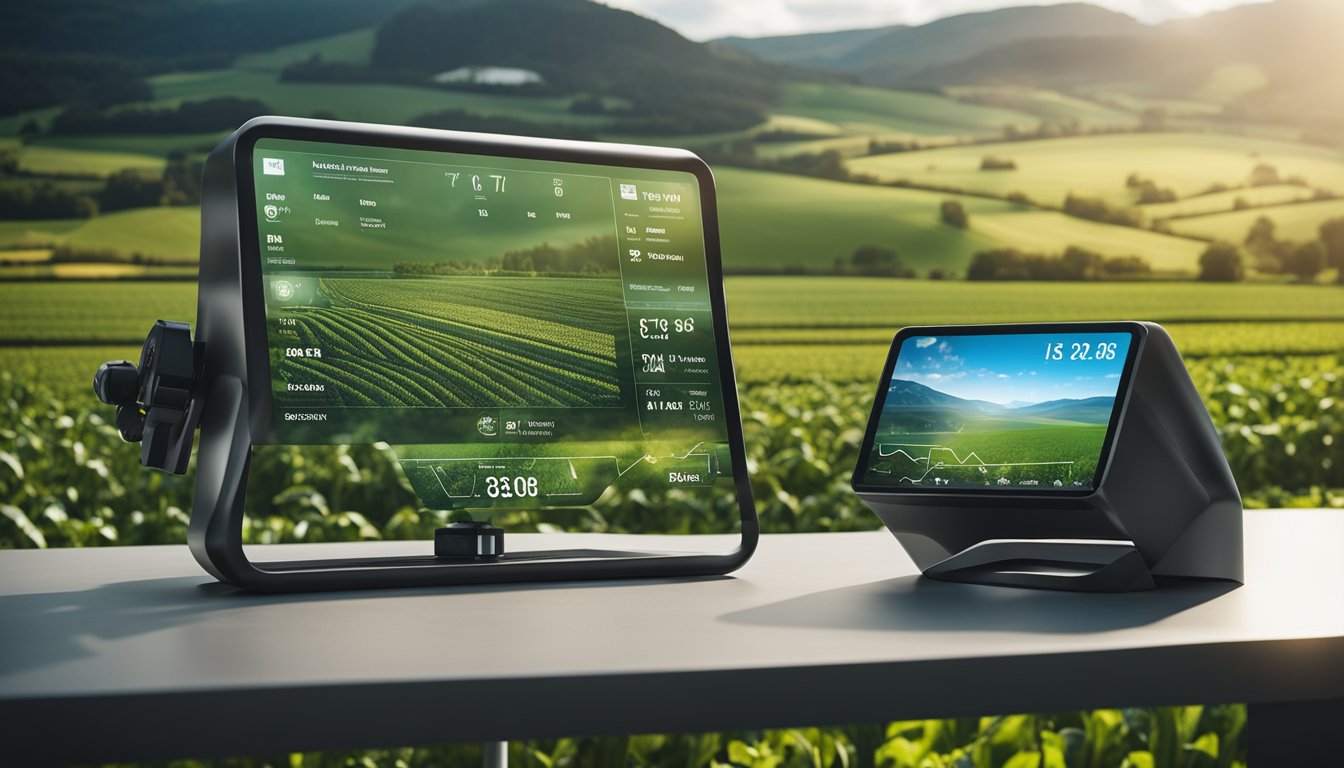Late updated: 08 Oct 2024 10:10
Written by: Oliver Bennett
Innovative Smart Farming Tools For The Future UK Farms: Transforming Agriculture with Technology
The agricultural landscape in the UK is undergoing a remarkable transformation, driven by the adoption of innovative smart farming tools. These cutting-edge technologies are not only increasing productivity but are also paving the way for more sustainable farming practices. With the integration of artificial intelligence and precision agriculture, UK farms are achieving unprecedented levels of efficiency and resilience in the face of climate challenges.

Smart farming tools such as predictive algorithms, IoT devices, and advanced crop monitoring systems are becoming indispensable in modern agriculture. As we harness data-driven insights, we are witnessing improvements in yield optimisation and resource management. This technology revolution is empowering farmers to make informed decisions, ensuring long-term farm sustainability and profitability.
The synergy between traditional methods and digital innovations is shaping a new era for UK agriculture. By embracing these advancements, we are not only improving farm operations but also contributing to a more sustainable future. As we explore these smart farming tools, it becomes clear that the future of agriculture lies in the intelligent integration of technology and farming expertise.
Key Takeaways
- Smart tools are enhancing UK farm productivity.
- Sustainable practices are supported by precision technology.
- AI and IoT drive innovative farm solutions.
Assessing the Landscape of UK Smart Farming

The incorporation of smart farming tools is reshaping the UK agricultural landscape. By addressing both environmental concerns and productivity needs, these innovations hold transformative potential for the sector. We will explore the current state, challenges, and the policy landscape supporting these advancements.
Current State and the Role of Smart Farming
Smart farming tools, such as AI-driven technologies and precision agriculture systems, are increasingly being adopted across UK farms. Farmers are leveraging these innovations to enhance yield predictability and resource efficiency.
AI algorithms and digital twins allow for simulating environmental conditions, offering insights into crop growth patterns. These advancements are crucial in optimizing water usage and minimising waste, aligning with sustainable farming practices.
In regions like Lincolnshire, agritech innovations are setting benchmarks. These technologies contribute significantly to both food security and environmental objectives. Our farming sector stands at the forefront of these developments, poised to drive the next wave of agricultural transformation.
Challenges and Opportunities for UK Farms
Despite the promising trajectory, challenges persist in the widespread adoption of innovative farming tools. High initial investment costs and technical know-how are often barriers for small- and medium-sized farms.
However, the opportunities are vast. The shift towards precision agriculture presents chances to increase productivity while reducing environmental impact. Addressing climate change through technology is a priority that aligns with both economic and ecological interests.
Access to information and education on new technologies can catalyse adoption. As a sector, bridging the knowledge gap is essential to make the most of these opportunities, turning challenges into catalysts for growth and sustainability.
Agricultural Policy and Innovation Funding
Policy frameworks and funding play a pivotal role in fostering smart farming technologies in the UK. Organisations like Innovate UK and UK Research and Innovation are actively supporting these developments. Defra's contributions also cannot be overlooked.
Through initiatives like the farming innovation programme, significant funding opportunities are available. These aim to support projects that align with net-zero targets and improve sustainable farming practices. Announcements of government funding up to £90 million are evidence of this commitment.
The government is creating an innovation-friendly environment. With proper policy support, the UK agricultural sector can lead advancements in sustainable farming, supporting climate goals while ensuring food security.
Technological Advances in Smart Farming
In the realm of smart farming, technological innovations are setting the stage for a remarkable transformation in the agricultural landscape. These advancements focus on achieving precision, enhancing automation, and fostering resilience, shaping the future of farming.
Precision Agriculture and Data-Driven Insights
Precision agriculture represents a critical leap forward by utilising advanced technologies to enhance productivity and sustainability. Through GPS and IoT devices, we can now manage fields on a micro-scale level, enabling more efficient use of resources such as water and fertilisers.
Farmers can use data analytics tools to monitor crop health and implement precision planting strategies. This approach reduces waste and increases yields while supporting climate-smart farming practices. Remote sensing and GIS technologies further assist in analysing land management, providing valuable data-driven insights for crop and livestock production. Together, these tools contribute to achieving net zero emissions and promoting sustainable practices across the agricultural sector.
Automation and Robotics in Agriculture
Automation and robotics are revolutionising how we approach farming tasks. Robotic technologies such as automated tractors and robotic vehicles are minimising manual labour and optimising operations. These innovations are integral to increasing efficiency by conducting tasks like planting, harvesting, and monitoring with minimal human intervention.
The use of drones in smart farming allows us to collect real-time aerial data, helping growers make informed decisions about crop management. As part of our drive towards innovation and sustainability, incorporating robotics and automation enables us to bolster productivity and promotes the efficient use of resources while ensuring long-term viability by reducing the farming sector's reliance on manual processes.
Innovative Solutions for Enhancing Farm Resilience
To build resilient farming systems, we need to implement innovative solutions that support both environmental and economic sustainability. The utilisation of blockchain technology offers improved transparency and trust in supply chains, benefiting both farmers and consumers. This technology, combined with smart contracts, ensures traceability and reduces fraud.
Our investment into resilient farming systems is further bolstered through agroforestry practices and enhanced livestock production techniques. By integrating these solutions, we can adapt to changing climates and secure our agricultural futures. The Farming Investment Fund provides financial support for initiatives that align with these goals, promoting resilience and sustainability within the agricultural sector.
Frequently Asked Questions

In exploring the landscape of smart farming tools for the future of UK farms, it's important to recognize the trends and innovations shaping productivity, sustainability, and efficiency. Here we address some commonly asked questions, offering insights into cutting-edge developments in agriculture.
What are the emerging trends in precision farming technology for UK agriculture?
In the UK, precision farming technology is advancing rapidly with innovations such as GPS-guided machinery, drones for field monitoring, and data analytics platforms. These technologies help farmers make more informed decisions, enhancing crop yield while minimizing resource use.
How do the latest innovations in smart farming tools improve productivity and sustainability on UK farms?
Smart farming tools like IoT sensors and autonomous tractors increase productivity by automating tasks and providing real-time data. This technology enables more sustainable practices by optimizing resource management and reducing waste, contributing to environmental conservation on UK farms.
Can you list five examples of new agricultural technologies revolutionising modern farming practices?
- Autonomous drones for crop surveillance
- Soil health monitoring sensors
- AI-driven predictive analytics for yield forecasting
- Automated irrigation systems
- Blockchain for traceability in supply chains
What advancements have been made in livestock farming tools to enhance efficiency?
In livestock farming, advancements include precision feeding systems that optimize nutrient delivery, health monitoring wearables for real-time animal welfare tracking, and robotic milking machines that streamline dairy processes, improving farm efficiency.
How might future technologies facilitate crop management and disease control in UK agriculture?
Future technologies like machine learning algorithms can predict disease outbreaks, and nanotechnology-based treatments offer targeted pest control solutions. These innovations will significantly enhance crop management and reduce losses due to diseases, paving the way for more resilient agricultural practices.
What are the key benefits and potential challenges of implementing innovative farming solutions in the UK?
The key benefits include increased efficiency, reduced environmental impact, and improved profitability for farmers. However, challenges such as high initial costs, the need for technical expertise, and data privacy concerns must be carefully managed to ensure successful implementation.
